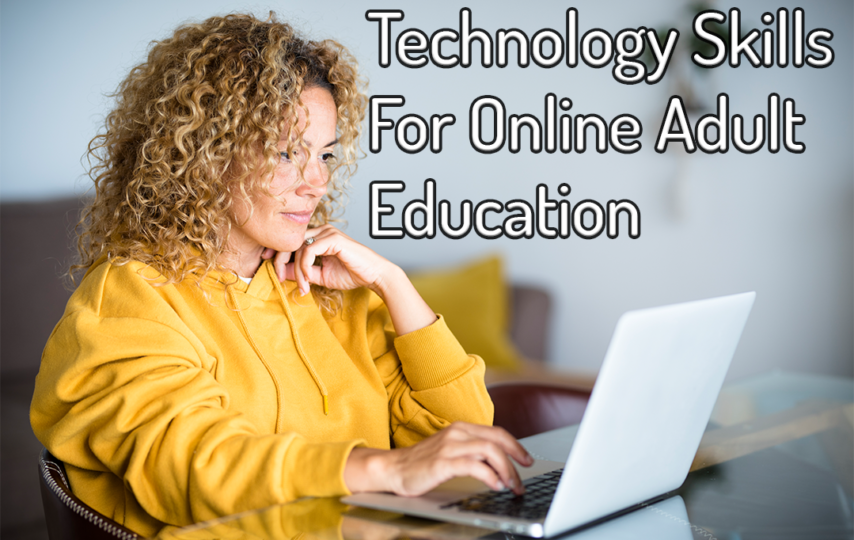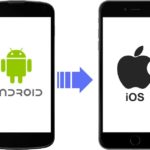Planning for success in continuing education programs require the ability to conduct online research, use Web 2.0 tools, and be computer literate.
Technology skills lie at the heart of the world of education. As nontraditional students enroll in adult education programs in ever increasing numbers, the skills they must have include the ability to use computers in a Web 2.0 environment. Beyond education, adult students are required to transfer these technology skills into most careers today.
Regardless of the career field selected by adult learners, they must be able to access, organize, and evaluate information using technology. Technology skills enable adult learners to enroll in education programs they desire, along with where and how they want. This medium of learning provides access to learning opportunities that individuals can fit in around their busy lives
Online Learning
Most educational platforms require the following examples of learning strategies. Adult learners need to support appropriate technology skills in adult education. The following fit within the characteristics of the habits of successful adult learners.
Online Research – an important technology skill nontraditional students need is the ability to find information using online resources. This includes the ability to find relevant information and how to filter out nonsense from important information. This includes the ability to search for information beyond the first page of hits returned by of a search engine. The hits on the first page of a search engine are typically only based on popularity and not the information needed.
Example online research resources include:
Goggle – search engine to support research (many people still don’t know how to use it properly)
Education Research Information Center (ERIC) – data base for researching educational literature. For instance, at Studocu — a remarkable website for downloading and accessing study materials of various subjects — you can easily do your research and complete your study assignments. If you are an engineering student and looking for, “what are sdlc documents” it’ll give you great options.
Business Full Text – a database of abstracts and full text resources for researching business magazines and journals.
General Science Full Text – a database of abstracts and full text resources for researching science magazines and journals.
Web 2.0 – these technology skills refer to the use of tools which provide interactive information sharing, interoperability, and collaboration. Web 2.0 includes web-based communities, hosted services, web applications, social networking sites, video-sharing sites, wikis, blogs, and mashups. Web 2.0 sites allow users to interact with other users or to change website content.
Example Web 2.0 tool resources include:
Twitter – social networking site for maintaining contact with instructors and classmates.
Wikipedia – a wiki that provides a wealth of online information much like an encyclopedia.
Mashups – consumer, data, and business web applications that bring together several resources of information to form a unique new combination of information to support research.
Flickr – picture and video sharing website for schoolwork
Del.icio.us – content storage and sharing for self and group collaboration schoolwork.
Wikispaces – provide the opportunity to develop a website for supporting schoolwork and then follow adults into employment
Computer Skills
The following are examples of computer technology skills adult learners must have to support appropriate technology skills in adult education. The following are consistent of adult learners who plan for their enrollment in continuing education programs.
E-mail – the ability to communicate well with instructors and classmates, along with the capability to attach document files, images, videos, links to other websites, and presentations.
Word Processing – have a thorough working knowledge of word processing programs and their full capabilities. The most common word processing in adult education programs are Microsoft Word and Goggle Documents.
Presentations – have a thorough working knowledge of the capabilities of presentation tools such as the most common Microsoft Power Point, along with the free online resource at Goggle Documents.
Spreadsheets – have a thorough working knowledge of the capabilities of spreadsheets such as the most common Microsoft Excel, along with the free online resource at Goggle Documents.
Notes – a handy tool such as Microsoft OneNote for storing, organizing, and sharing notes for research papers and other written school work.
Multimedia – the ability to watch videos and listen to podcasts which are often used as resources by instructors to support course work.
Making Connections
Adult learners must have the necessary technology skills to be successful in today’s adult education world. Colleges and universities have shifted to or are making the shift to more use of online learning tools, even in courses which are not strictly offered via distance education.
The computer skills needed to succeed in college programs are the basic required skills of employers expect of employees today. The ability to integrate online learning and computer skills could mean the difference between obtaining a new job or continually searching for a new job.












